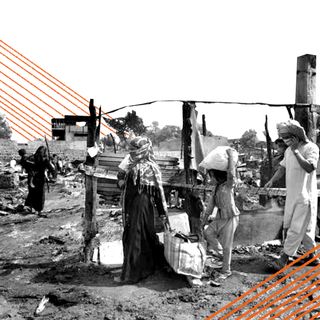The Karnataka High Court last week observed that acid attacks are a dirge against humanity and violate basic human rights.
In the present judgment, the bench, constituting Justices B. Veerappa and V. Srishananda, was responding to a petition by the accused who threw acid on a woman after she refused to marry him.
“The alleged acid attack by the accused on PW.8 (victim) merely on the ground that, she refused to marry him as her parents did not give consent, the accused cannot treat the victim as slave and pour acid on her face and body,” the bench said.
The court noted the “brutality” of the crime was too grave and sat uncomfortably with the “conscience” of the court, and upheld the man’s life sentence along with imposing a fine of Rs. 10 lakh. “The damage caused by the accused throwing acid on the victim is immense, irreparable and cannot be retractable and the victim has to suffer throughout her life. Therefore, the accused is not entitled for any lenience or mercy to be shown,” the court noted.
Acid attack cases only seem to be on the rise in India rather than declining. Data from the National Crime Records Bureau — who classified acid attacks as a separate crime — between 2014 and 2018 shows that nearly 1,500 acid attacks took place within this timespan.
As evident from the present case, acid attacks become a particularly insidious form of gender-based violence, wherein the intention to cause physical and emotional suffering is framed as revenge for women not submitting to demands for marriage, relationships, or sex.
But the conviction rate for acid attacks remains very low. A report by the Acid Survivors Trust International noted that in India, nearly 76% of attackers are often known to the survivors, which makes reporting cases a deterrence.
Related on The Swaddle:
‘Chhapaak’ Avoids Trauma Porn, Focuses on Legal Nightmare for Survivors
“There are many unreported cases of acid attacks where victims die, especially in rural areas. Sometimes people try to hide information if the attacker was the husband or a family member of the victim,” Prasun, an acid attack survivor, told Deutsche Welle.
The costs of surviving acid attacks are enormous. In the present case, reconstructive surgeries cost the woman over Rs. 22 lakhs — a sum that, the court observed, many others would not be able to afford.
Acid attacks can also be life threatening and cause severe trauma both physically and mentally. Survivors reportedly find it difficult to participate in public and social life after an attack.
The court noted the widespread availability of acid makes it an “ideal” weapon by the perpetrator, despite government regulations.
The Supreme Court in 2013 banned the indiscriminate sale of acid and laid down guidelines on how, when, and to whom shopkeepers can sell acid. Legally, licensed retailers are required to keep a sales record that includes a customer’s response as to why they wish to purchase acid.
The guidelines were a result of a public interest litigation filed by Laxmi Agarwal, an acid attack survivor who petitioned for a ban on the free sale of acid that makes their use as a weapon much easier.
In the present case, the court observed that women’s status due to socio-cultural dogmas, along with the rampant usage of acid as a tool of violence, makes acid attacks a widespread reality. The crime goes against the “entire civilized society,” the bench noted, adding that “Justice demands that the Courts should impose punishment befitting the crime so that the Courts reflect public abhorrence of the crime.”




